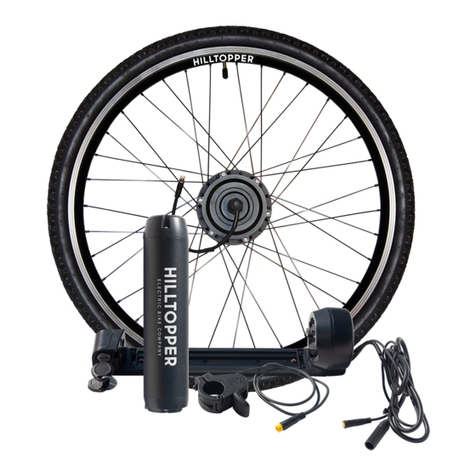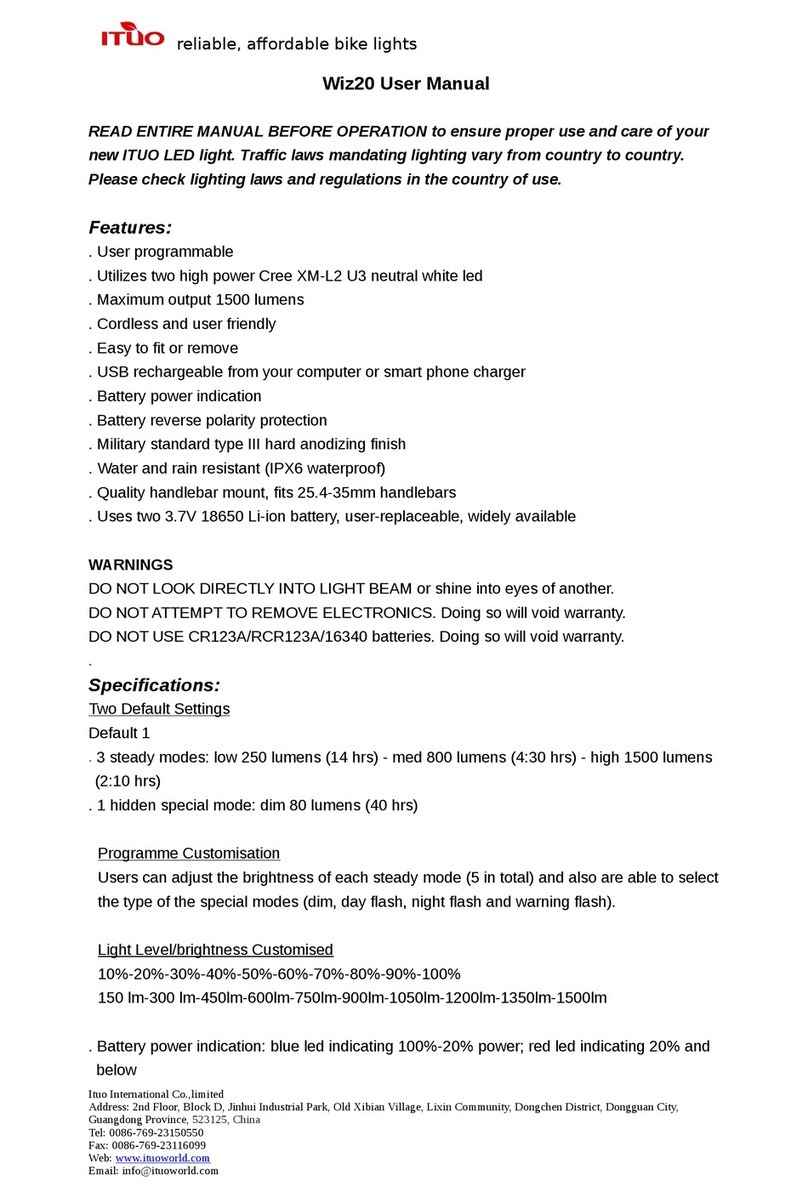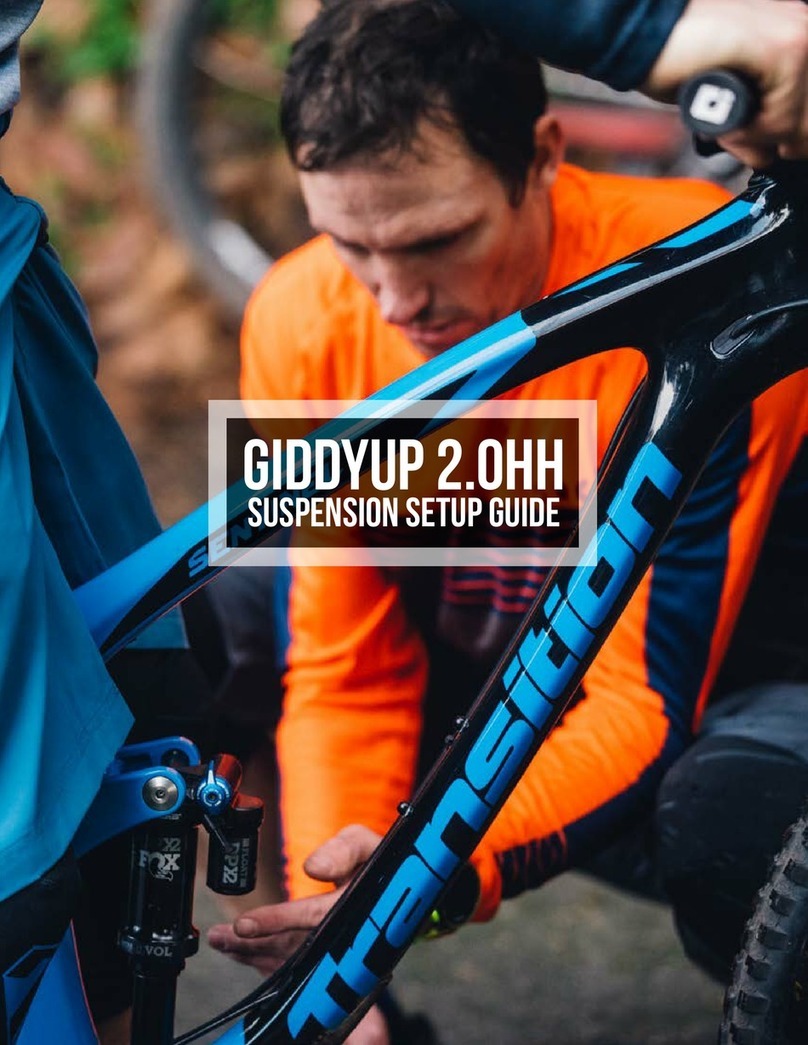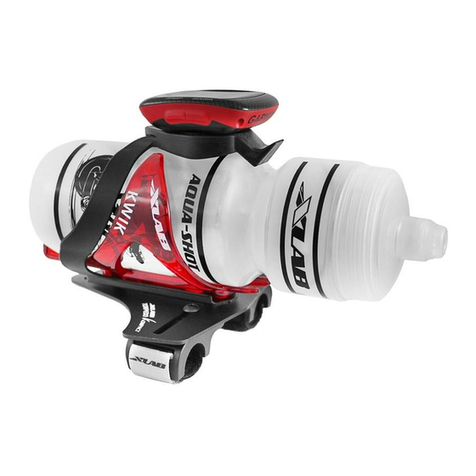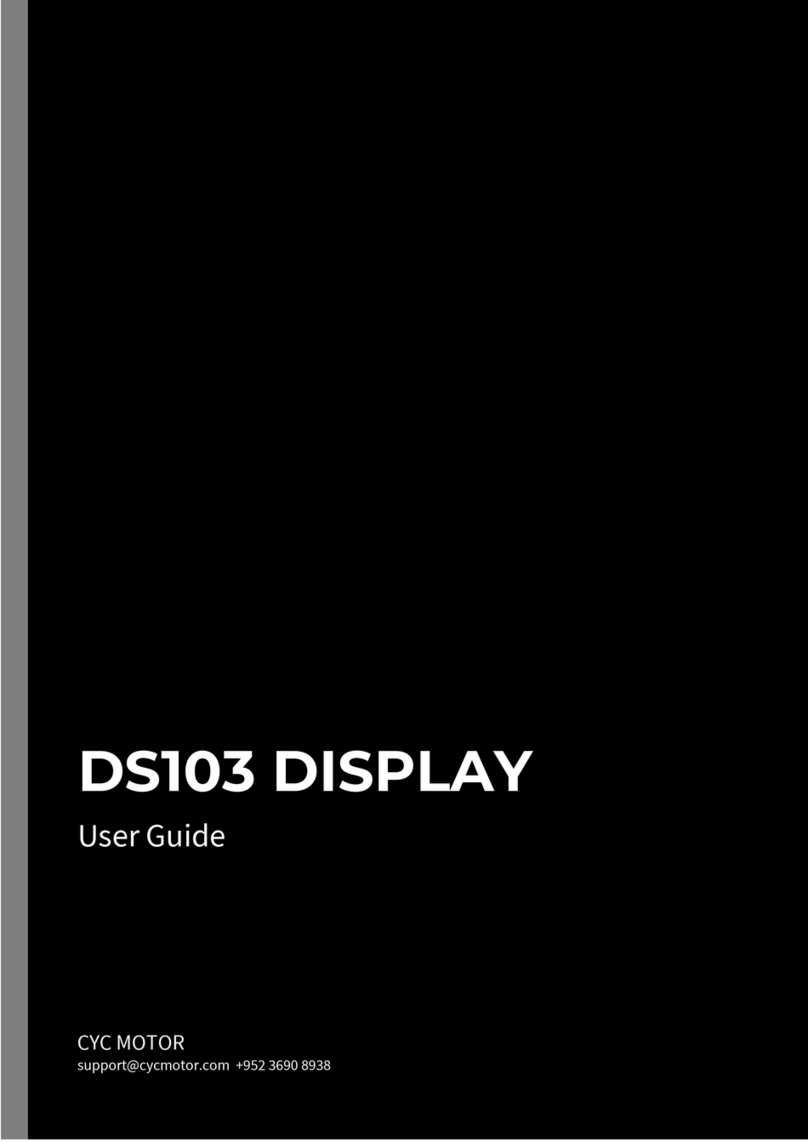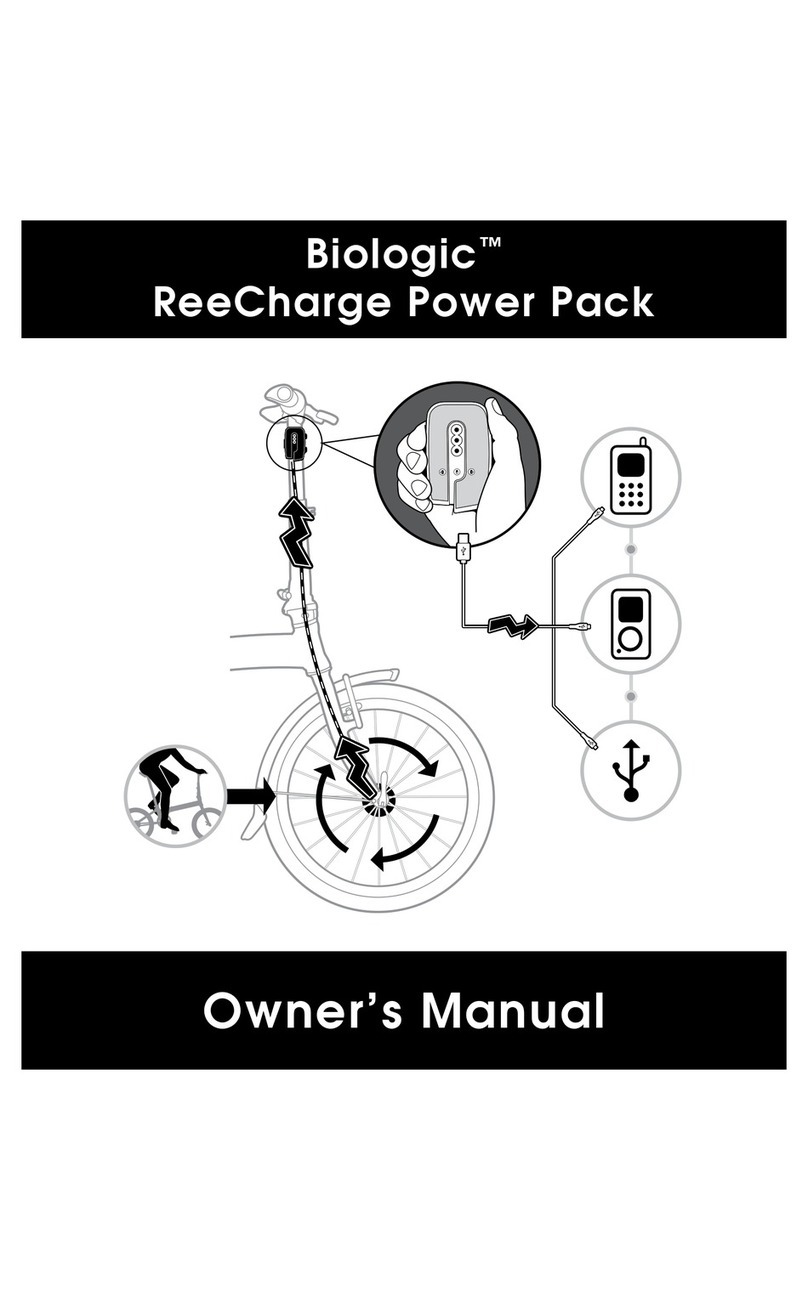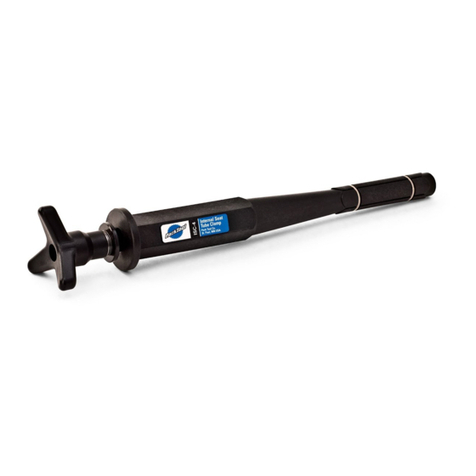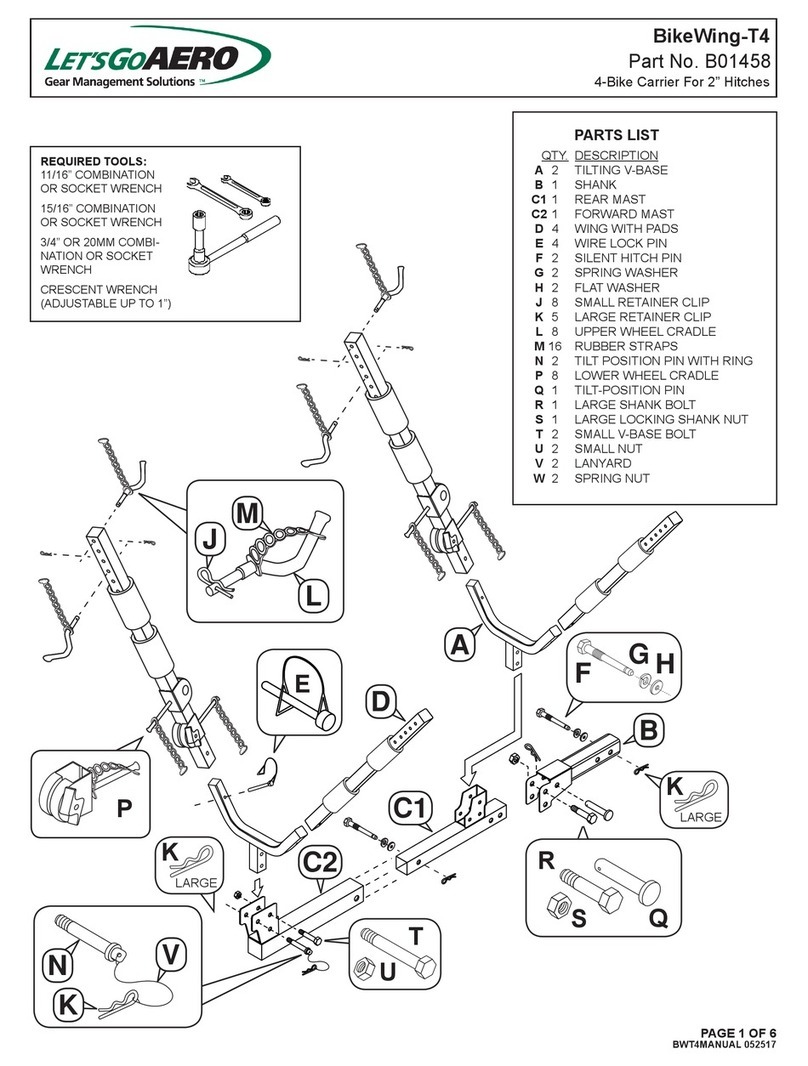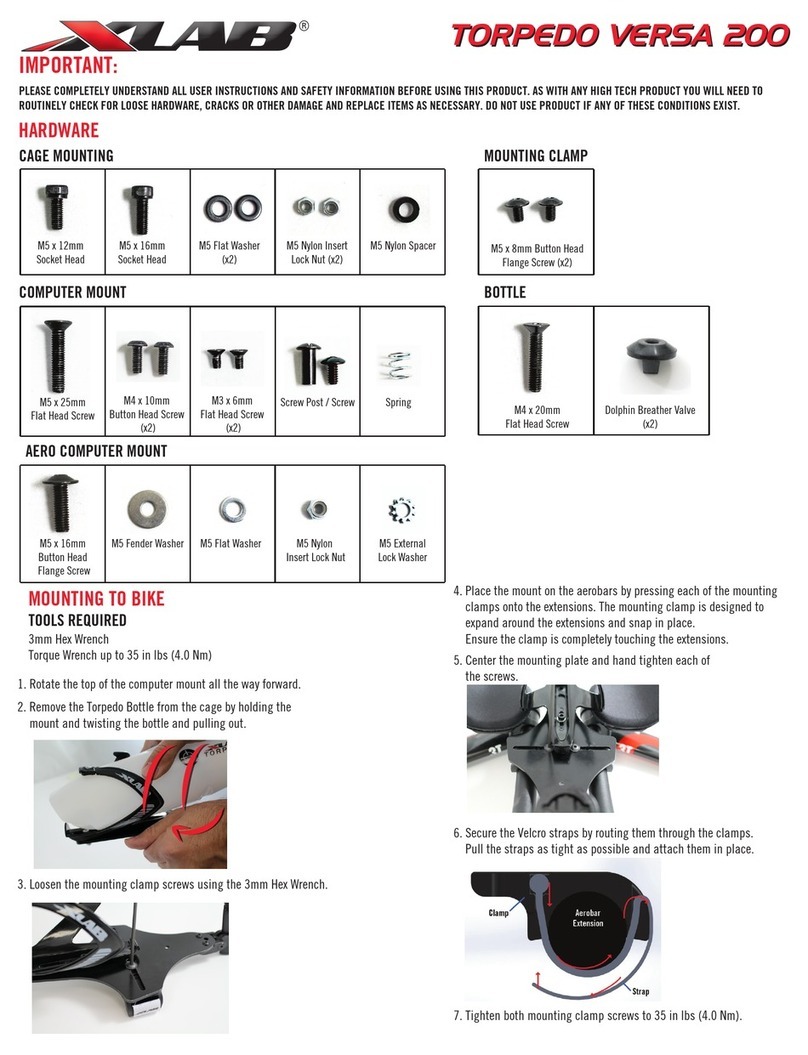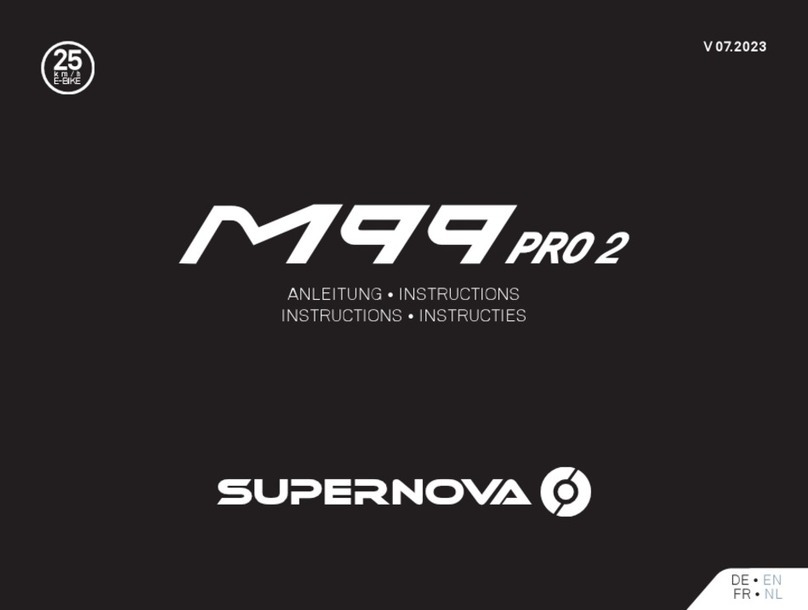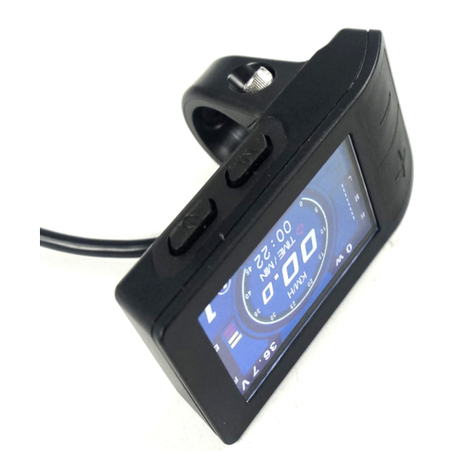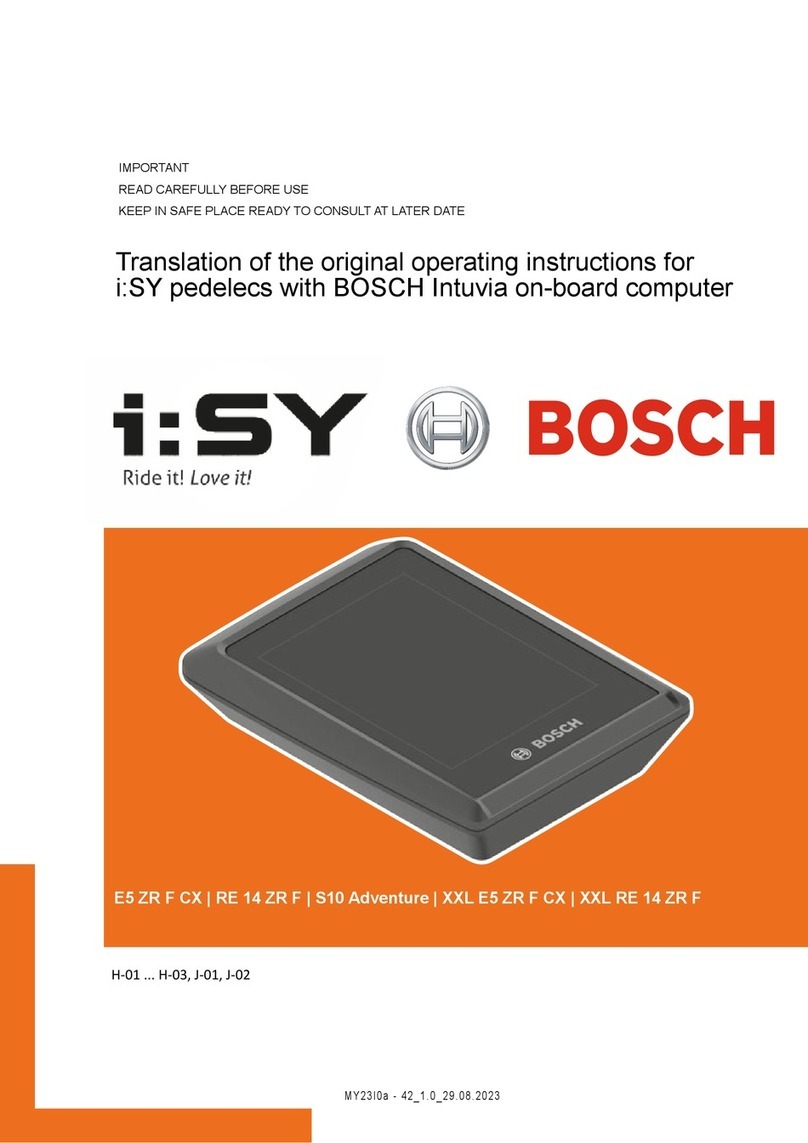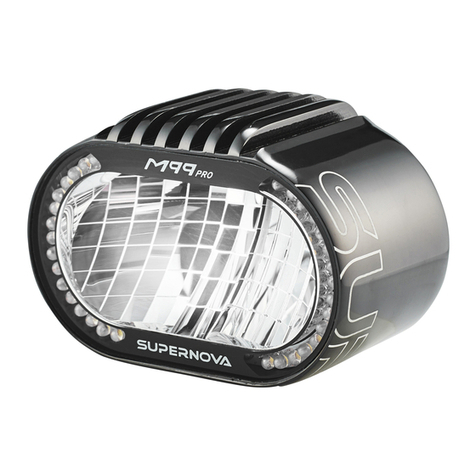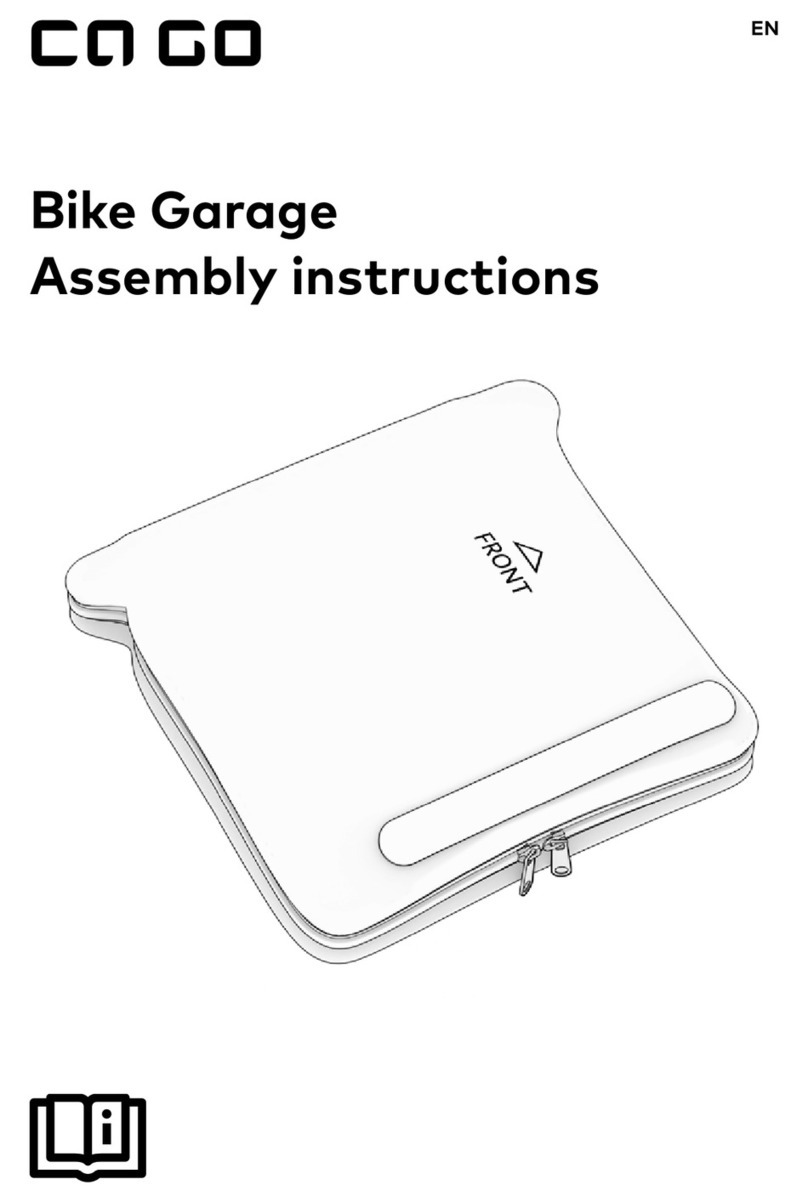HILLTOPPER HORIZON User manual

INSTALLATION GUIDE

Congratulations on the purchase of your Hilltopper Horizon 36V electric bike kit. And welcome to the
Hilltopper community of electric bike enthusiasts.
With a small but powerful 350W hub motor and a battery with a range of 25 to 50 miles, the Horizon
will get you where you need to go and back. The install should take around an hour depending on
your mechanical skills and enthusiasm. You can also take your bike and kit to a local bike shop to
have them install your kit. Install fees will vary with different shops.
When you finish your install, double-check that all the bolts are tightened, the connections are secured,
the wheel rolls freely, and the battery is charged. Start off slowly at first to get used to the assist.
AND THEN HAVE FUN!
WELCOME TO YOUR HILLTOPPER HORIZON ELECTRIC BIKE KIT
Assumption of Risk, Release of Liability, Indemnity, and Hold Harmless Agreement
By purchasing these Products, I understand and agree to the following:
Bicycling and related activities are hazardous and injuries are common and ordinary occurrences
during these activities. I agree to assume all risks of death or injury to any part of the user’s body
while using the Products.
&OHDQ5HSXEOLF62'2//&IRUPHUO\GRLQJEXVLQHVVDV&OHDQ5HSXEOLFDQGQRZGRLQJEXVLQHVV
DV+LOOWRSSHUis not responsible for modifications made by me to my bicycle such as forkfiling or
anymodifications made to the Products.
Non-steel and/or non-rigid forks (aluminum, suspension, etc.) are weaker than rigid steel forks.
&OHDQ5HSXEOLF62'2//&IRUPHUO\GRLQJEXVLQHVVDV&OHDQ5HSXEOLFDQGQRZGRLQJEXVLQHVV
DV+LOOWRSSHUrecommends installation of the Products on rigid steel forks, XQOHVVDQRQVWHHO
IRUNPRGHOLVVSHFLILFDOO\VXSSOLHGRUFHUWLILHGE\+LOOWRSSHUalthough non-steeland/or non-rigid
forks areacceptable for use. I agree to assume all risks if I choose installation onnon-steel and/or
non-rigidforks despite +LOOWRSSHUV recommendation.
&OHDQ5HSXEOLF62'2//&IRUPHUO\GRLQJEXVLQHVVDV&OHDQ5HSXEOLFDQGQRZGRLQJEXVLQHVV
DV+LOOWRSSHUrecommends tightening the axle nuts with a force of not less than 28 foot-pounds.
Installing the Products on my bicycle adds additional forces to the bicycle frame and may change
handling characteristics. Well-adjusted, well-functioning brakes are key to safely using the
Products and operating any bicycle. I understand and agree that I will have my bicycle’s brakes
inspected by a bicycle repair shop after installation of the Products.
To the fullest extent allowed by law, I agree to forever release and hold harmless &OHDQ5HSXEOLF
62'2//&IRUPHUO\GRLQJEXVLQHVVDV&OHDQ5HSXEOLFDQGQRZGRLQJEXVLQHVVDV+LOOWRSSHUand
itsowners, agents, employees, and affiliates from any and all responsibility or legal liabilityfor
anyinjuries, damages or death to any user of any equipment and the Products listed in this
form,whether resulting from negligence or any other cause. I further agree that I will defend and
indemnify them if any claim or action is pursued for any injuries, damages or death relating to
bicycling or any related activities involving the use of this equipment and the Products.
I accept the Products herein “as is” and with no warranties, express or implied, beyond those
stated in this agreement and in the manufacturer’s written limited warranty, if any.
I understand how the Products work and have received instruction and satisfactory answers to
any questions regarding the use and function of the Products. If this is new equipment, I
acknowledge receipt of the manufacturer’s written instructions. If at any time the Products do not
seem to be working properly, I will stop using it immediately andFRQWDFWWKHLUVXSSRUW
GHSDUWPHQWWR return it for inspection andpossible repair or adjustment.
If the Products are to be used by someone other than me, I certify that I am acting as agent of the
user and that I will provide this form and all pertinent warnings and information to the user.
This document is a legally binding contract which supersedes any other agreements by and
between the parties, and which constitutes the final and entire agreement regarding the services
and the Products. This agreement is intended to provide a comprehensive release of all legal
liability which is binding upon and for the benefit of all parties, their heirs, agents, and assigns, but
is not intended to assert any claims or defenses that are prohibited by law. If any part of this
agreement is held to be invalid or unenforceable, the remainder will be given full force and effect.
This agreement will be interpreted, construed, and governed by and under Washington State law.
Exclusive venue and jurisdiction over the parties and the subject matter to this agreement will be
in the Superior Court of Washington in King County.

LET’S GET STARTED
PARTS AND PIECES -
WHEEL WITH HUB MOTOR,
MOUNTING HARDWARE and MOTOR CABLE
TIRE and TUBE
BATTERY and BATTERY DOCK
MOUNTING HARDWARE
CHARGER
KEYS
VARIABLE SPEED THROTTLE WITH CABLE
PEDAL ASSIST SENSOR (PAS)
2-PIECE MAGNET WHEEL and ALUMINUM LOCK RING
INSTALLING THE BATTERY:
The BATTERY is designed to be mounted to your bike using the water bottle mounts on your bike's frame
NOTE: On the frame is the recommended and generally considered ideal placement.
If your bike does not have a place to mount on the frame then a front or rear bike rack can work.
CAUTION: The BATTERY DOCK must be firmly attached. Make sure to tighten the dock bolts periodically.
Any damage to the battery due to insufficient mounting will not be covered under warranty.
STEP 1: Install the BATTERY DOCK on the frame or carrier and use the provided hardware to install.
NOTE: Make sure the base of the BATTERY DOCK with the cables points down towards the bottom bracket / pedals.
STEP 2: Insert the BATTERY on to the BATTERY DOCK once it is installed and secured.
CAUTION: You must use the key to lock the battery in place to secure it.
STEP 3: Confirm that the BATTERY is locked and secure before riding.
STEP 4: To remove the BATTERY from the BATTERY DOCK.
A: Insert Key and turn counter-clockwise.
B: Once unlocked simply pull the BATTERY out of the BATTERY DOCK.
USE KEY TO LOCK
THE BATTERY IN
PLACE TO SECURE

INSTALLING THE VARIABLE SPEED THROTTLE
We recommend putting the VARIABLE SPEED THROTTLE on the LEFT. Placing them between the handlebar grip and the brake/shifter levers.
NOTE: You may set up your placement differently depending on your preference and bike set up.
STEP 1: Remove handlebar grips.
NOTE: Some grips have locking bolts on the end of the handlebar. If resistance is too great, you can heat the grip with a hair-dryer.
Grips may be cut off of the bar, but will need to be replaced.
NOTE: If you wish to install your VARIABLE SPEED THROTTLE on the inside (closer to the stem) of the brake/shifter lever you
will need to slide the brake/shifter level off the handlebars
Loosen brake/shifter and slide off of handlebar.
Usually there is only one bolt for each located on the backside or underside of the handlebar.
Cables do not need to be disengaged to remove the brake or shifter levers.
STEP 2: Slide VARIABLE SPEED THROTTLE onto the handlebars
STEP 3: Partially tighten the provided bolt on the underside of the clamp with a 3mm hex wrench.
NOTE: Keep it a little loose untill grips are replaced for ajustability.
STEP 4: Slide grips back into place remembering to lock them if they have locking bolts.
NOTE: If you have removed the brake / shifter lever make sure slide those on before the grips.
STEP 5: After everything is in place and where you want it TIGHTEN each part to avoid any movement once the bike is in use
VARIABLE SPEED THROTTLE
TURNING THE BATTERY ON / OFF:
Press the red POWER SWITCH on the side of the BATTERY
to turn the BATTERY on or off.
You can find the switch under the rubber cover on the side
CAUTION: Make sure to turn the BATTERY off when not in
use to avoid accidental throttle engagement and battery drain.
CHARGING THE BATTERY:
NOTE: Charge plug is found under the rubber cover with the
power switch
A. Plug your charger into the wall socket and wait for the
light to turn GREEN.
B. Plug the charger into the battery. The charger light will turn
RED and stay RED while charging.
C. When the charger light turns GREEN your battery is fully charged.
NOTE: Charger will take 6 hours to recharge depleted battery
POWER SWITCH CHARGING PORT
USB PORT

INSTALLING THE HUB MOTOR WHEEL
Please refer to FIG 1 on the following page for installing your new Hilltopper HUB MOTOR WHEEL.
Please orient FIG 1 to your installation position. Installation positions include bike upside down with handlebars and seat resting on
the ground, on a bike rack, or standing with the wheels on the ground. FIG 1 image orientation is looking at the front of the bike with
the wheels on the ground.
The best way to orient FIG 1 is to always use the DRIVE SIDE. This is the side with the chain.
STEP 1: Loosen your brakes and remove your bike’s front wheel.
DISC BRAKES: After removing your wheel, make sure you put a plastic spacer in between the
brake pads to keep them from locking shut.
A. Remove the disc brake rotor from your wheel.
B. The HUB MOTOR WHEEL is disc brake compatible.
C. Align the disc brake rotor with the holes on the MOTOR.
D. Attach the rotor to the MOTOR using the disc screws provided.
NOTE: Your brake may need some adjusting after installation to avoid rubbing.
STEP 2: Set your HUB MOTOR WHEEL in place with the MOTOR CABLE on the NON DRIVE SIDE.
Ensure that the bike fork is seated securely on the axle with the fork prongs projecting down
Make sure the wheel can turn properly without rubbing or grinding on the fork or brakes.
NOTE: Remove plastic spacer from disc brakes before setting wheel in place if installed earlier.
STEP 3: Slide the TAB WASHER over the axle on both sides of the MOTOR.
NOTE: Ensure that the MOTOR CABLE is on the NON DRIVE SIDE of the bike and that the TAB WASHER is properly installed.
A. The “TAB” on the WASHER faces inwards towards the MOTOR, and down towards the MOTOR CABLE.
B. The MOTOR CABLE should be below the axle and TAB WASHER, when the bike is standing with the wheels on the ground.
IMPORTANT - INCORRECT TAB WASHER INSTALLATION CAN CAUSE SERIOUS DAMAGE TO THE MOTOR CABLE. THIS IS NOT
COVERED UNDER THE HILLTOPPER WARRANTY.
STEP 4: Install the rest of the hardware for both sides of the motor
A. Ensure that the tab washer from step 3 is properly installed.
B: Slide the THICK WASHER over the axle.
C: Screw the AXLE NUT onto the end of the axle.
STEP 5: Finger tighten each AXLE NUT.
STEP 6: With the bike right side up, push down from the handle bars to ensure the wheel is fully seated in place.
Then use a wrench to fully tighten the nuts. ( Recommended 38Nm or 28ft-lb).
STEP 7: Slide on each AXLE PROTECTOR CAP.
STEP 8: Reset brakes and make sure the HUB MOTOR WHEEL spins freely.

FORK
FORK
DISC
BRAKE
ROTOR
(IF BIKE HAS
DISC BRAKES)
MOTOR
CABLE
MOTOR
AXLE
AXLE
IMAGE ORIENTATION
LOOKING AT THE FRONT OF THE BIKE WITH
THE WHEELS ON THE GROUND
TAB
WASHER
THICK
WASHER
AXLE
NUT
DRIVE SIDE
(CHAIN SIDE)
FIG. 1
AXLE
PROTECTOR CAP

BATTERY / THROTTLE
CONNECTOR
BATTERY CABLES
INSTALLING THE PEDAL ASSIST SENSOR (PAS) and MAGNET WHEEL:
The PAS and MAGNET WHEEL are optional. You can still use the VARIABLE SPEED THROTTLE to activate the motor.
STEP 1: The MAGNET WHEEL is made up of two pieces. They will both have a “working surface” and ridge side.
A. Place each on either side of the spindle behind the DRIVE SIDE crank with working surface facing inward towards the seatpost.
B. Push together and use the aluminum ring to hold together. The aluminum ring should stretch and snap into place over/around
the two halves of the MAGNET WHEEL to ensure they will not separate.
STEP 2: On the DRIVE SIDE (chain) of your bike place the PAS at the bottom of the SEAT TUBE (right above the cranks and pedals).
A: Make sure the red LED is pointed up and the “target” logo is pointed down.
B: Align the target with the MAGNET WHEEL magnets.
C: Use the provided zip-ties to attach the PAS securely to the seat tube.
MAGNET WHEEL
ALUMINUM RING
BATTERY / MOTOR
CONNECTOR
BATTERY / PAS
CONNECTOR
CONNECTING THE CABLES:
The Horizon 36V BATTERY has 3 cable connections. These will be used to connect the VARIABLE SPEED THROTTLE, PEDAL ASSIST
SENSOR and HUB MOTOR, to the battery.
IMPORTANT: Be mindful of the arrows on each plug. Align arrows before inserting plugs together. Poor installation may result in
damaged pins and bad connectivity.
NOTE: This type of damage is not covered under warranty.
STEP 1:The yellow male 3-pin plug connects to the VARIABLE SPEED THROTTLE cable.
• Connect the BATTERY cable to the VARIABLE SPEED THROTTLE cable
STEP 2:The large MOTOR CABLE connects the BATTERY DOCK directly to the MOTOR.
• Connect the BATERY cable to the MOTOR cable using the BATTERY / MOTOR CONNECTOR .
STEP 3:The remaining yellow female 3 pin plug connects the PEDAL ASSIST SENSOR cable to the BATTERY DOCK.
• Connect the BATERY cable to the MOTOR cable using the BATTERY / MOTOR CONNECTOR .
STEP 3: Secure all your cables with zip ties.
NOTE: Make sure that the cables do not interfere with the steering or hinder the performance of the bike.
Damage due to the cables not being properly secured is not covered under warranty.
PAS CABLE
THROTTLE
CABLE
TARGET LOGO
Table of contents
Other HILLTOPPER Bicycle Accessories manuals

